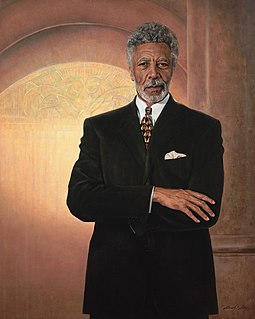A Quote by Alex Campbell
Over the past several years, all of us as Canadians, and as members of the North American cultural and economic environment, have been to a greater or lesser extent party to a significant attitudinal change towards our culture.
Related Quotes
Addressing the climate and biodiversity crises requires us to radically change our economic models, moving away from economic growth as the over-riding measure of progress and moving instead towards improving health and wellbeing for people and nature. That means a different economic model taking us towards a sustainable economy.
I think nowadays it doesn't really matter where we are physically located. We create our own culture around us to a large extent, whether it's what we're listening to, what we're watching, what we're reading - it can have very little to do with one's immediate cultural environment. We are in a global culture in that respect.
Change is never fast enough to satisfy us. I still hear too many stories of women who go back to work too soon, but I do believe that we have been able to change the paradigm in attitudes towards family leave in that it's no longer a nice thing to do for women, it's a must do for competitiveness, and that's a big change over the last seven years. Changing it into an economic issue is a big sea change in the last seven years.
Cultural diversity and cultural change are desirable and inevitable. We are cultural animals, someone without a culture is not human. But the cultures we possess vary enormously. Indeed, the variability, over time and space is the great evolutionary advantage of humanity. Instead of changing biologically over millennia, human beings can change culturally over decades
There is no significant man-made global warming at this time, there has been none in the past and there is no reason to fear any in the future. Efforts to prove the theory that carbon dioxide is a significant 'greenhouse' gas and pollutant causing significant warming or weather effects have failed. There has been no warming over 18 years.
The foreign audiences are somewhat surprised and happy to find an American film that asks questions about American culture. There's a certain kind of cultural imperialism that we practice. Our films penetrate every market in the world. I have seen and have had people reflect to me, maybe not in so many words or specifically, but I get the subtext of it - they're somewhat charmed and surprised and happy to see an American film reflect on our culture. Because they see other cultures reflect on our culture but they don't see US culture reflecting on itself in quite the same way.
































